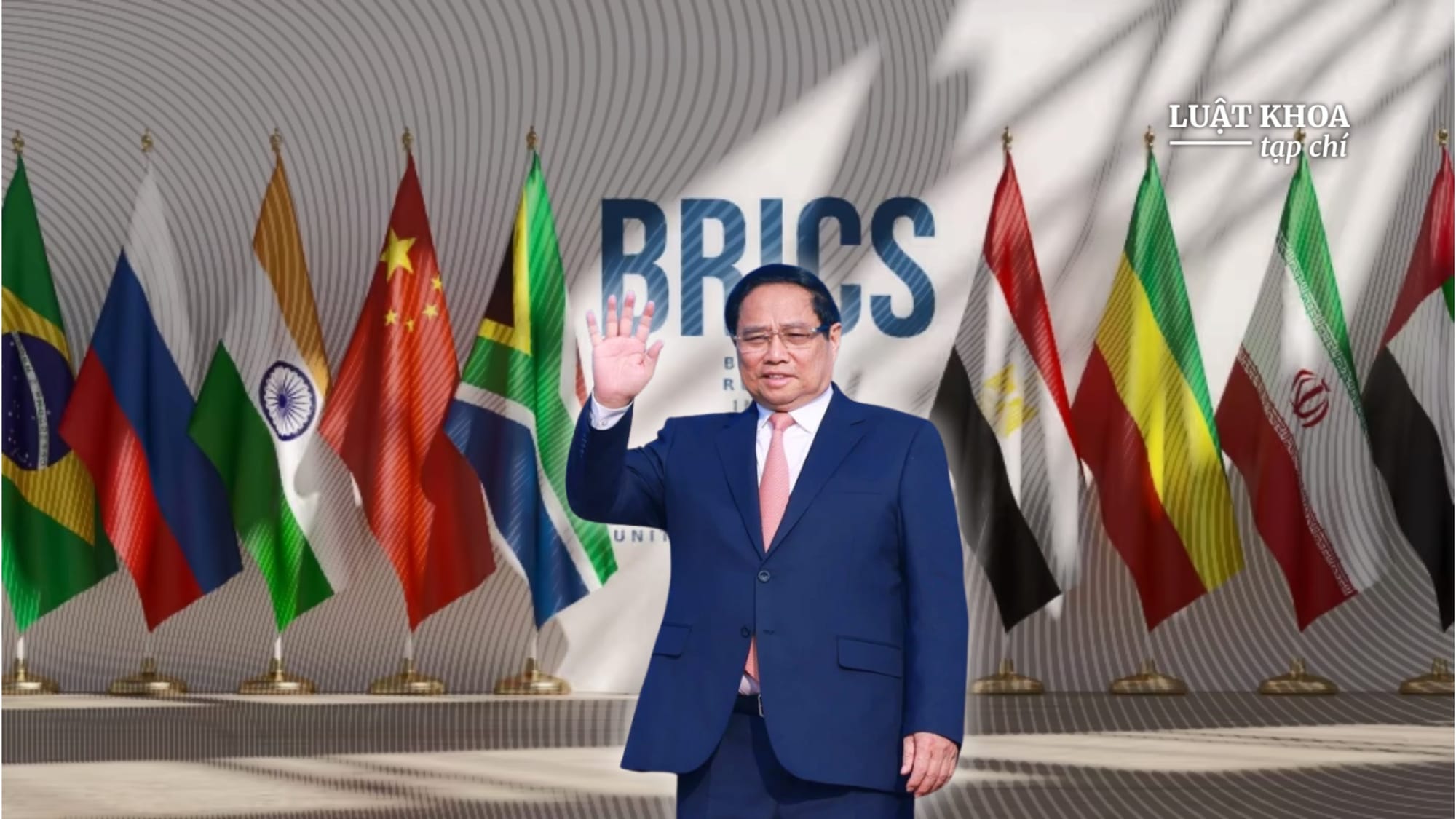Lê Ngọc Hà wrote this Vietnamese article, published in Luật Khoa Magazine on June 17, 2025.
On June 13, Brazil, the 2025 rotating chair of BRICS, officially announced the new partnership. In its statement, Brazil highlighted Việt Nam as “a relevant participant in Asia” for its “efforts in supporting South-South cooperation and sustainable development, which aligns Việt Nam with the group’s interests.”
BRICS representatives also praised Việt Nam’s “dynamic economy” and recognized the country’s “shared commitment with BRICS members and partners to a more inclusive and representative international order.”
The BRICS bloc of emerging economies was first established with the inaugural summit in June 2009, originally comprising Brazil, Russia, India, and China, with South Africa joining in 2010. The group has since expanded to include Egypt, Ethiopia, Iran, Saudi Arabia, the United Arab Emirates (UAE), and Indonesia.
As a South-led economic forum, BRICS has been gaining global traction through efforts to de-dollarize and transform the international monetary system. With its growing influence, BRICS is increasingly viewed as “a formidable diplomatic counterweight to traditional Western powers.”
To allow more nations to engage with the bloc without requiring full membership, the concept of “partner countries” was formally introduced at the 2024 BRICS Summit in Kazan, Russia.
This structure is described as a “flexible mechanism” that enables countries to strengthen ties with BRICS without compromising their relationships with the West. Before Việt Nam’s inclusion, the partner list consisted of Belarus, Bolivia, Cuba, Kazakhstan, Malaysia, Nigeria, Thailand, Uganda, and Uzbekistan.
As a BRICS partner, Việt Nam gains significant diplomatic leverage and new opportunities for economic growth. Under the partnership status, the country will be invited to regularly participate in special sessions of BRICS summits, foreign ministers’ meetings, and other high-level events.
Crucially, partner countries can also contribute to BRICS policy documents, giving them a valuable opportunity to shape agendas and promote their national perspectives in the bloc’s collective decisions.
The partnership also opens the door for deeper economic integration, most notably with the New Development Bank (NDB). The NDB is tasked with “mobilizing resources for infrastructure and sustainable development projects in emerging markets and developing countries”. For a developing nation like Việt Nam, this provides potential access to a new stream of financial resources, technology, and shared development experience.
This cooperation could be instrumental in fueling domestic investment projects across key sectors such as high technology, digital transformation, energy, agri-tech, healthcare, and infrastructure. Ultimately, support from BRICS could play a key role in helping Việt Nam meet its two major development goals: becoming an industrialized, upper-middle-income nation by 2030, and achieving high-income developed country status by 2045
Diplomatically, Việt Nam’s BRICS partnership allows Việt Nam to expand its relations with other Global South economies while reducing overreliance on any single traditional partner, such as China, Russia, or India. This reflects the core principle of “not putting all its eggs in one basket,” enabling the country to navigate major power competition with greater agility.
This approach is consistent with Việt Nam’s long-standing foreign policy established during the Đổi Mới reform era. That policy emphasizes “independent, self-reliant, multilateral, and diversified relations; being a friend, a reliable partner, and a responsible member of the international community,” a stance reaffirmed in every Party Congress.
Crucially, by joining BRICS as a partner—rather than a full member—Việt Nam maintains its strategic flexibility. This status allows the country to strengthen ties with the BRICS bloc without compromising its important relationships with the West, reflecting a commitment to multilateralism and a rules-based international order, a position emphasized by Prime Minister Phạm Minh Chính in 2022.
In short, Việt Nam’s inclusion as a BRICS partner represents a calculated and autonomous step to broaden its global economic network and amplify its voice in multilateral forums. As the BRICS bloc gains prominence, this move ensures that Việt Nam will not be left behind, while opening new doors to expanded trade and investment with the world’s leading emerging economies.
Ultimately, BRICS’ decision to accept Việt Nam signals a recognition of the country’s potential, not merely as a beneficiary, but as an engaged actor capable of contributing to the group’s future. However, only time will tell what substantive role Hà Nội will ultimately play in shaping this new, evolving world order.

